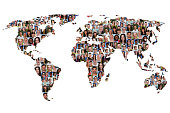Cheer for 2023! Wishing you a better year
We have just been through the season of giving and receiving. Like most of you, I gave and received. For a change, I ordered groceries – as a present to one family member – from a company whose website promises a one-day delivery. To date, these groceries have not been delivered. Until now, they have not responded to my half a dozen emails. After three phone calls, a man answered the phone and said they wouldn’t deliver and could only refund me if I gave them a UK bank account, which I refused.
Lesson 1. Stick to a proven or reputable company. (Seek redress. I have contacted Customer Service Coventry & Visa Worldline and am waiting for their responses).
We’ve been receiving parcels from Australia for many years. For the first time last December, we had to pay 20 euros as Value Added Tax (VAT) on a gift that cost 100 euros. I was surprised, so I visited https://www.douane.gouv.fr/fiche/recevoir-un-colis-envoye-par-un-particulier. This is what I found out:
In the case of non-commercial mailings between individuals, VAT and customs duties may be requested upon receipt of the package. These shipments must be occasional, concern goods reserved for the personal or family use of the recipients only and sent without payment of any kind. To benefit from customs duties and taxes exemption, the goods’ intrinsic value (excluding transport and insurance costs) must not exceed a certain threshold. These value requirements also apply to gifts: No customs duties from/to the EU (VAT has already been paid in the EU country of origin); Import from a non-EU country to an EU country or to an overseas department (example: Canada to France) ≤ 45 euros – no customs duties and VAT (> 45 euros – customs duties and VAT are due). Exchanges between the EU to their overseas territories “DOM” ≤ 205 euros – no taxation and customs duties (> 205 euros -overseas taxes and VAT are due).
Lesson 2. I should not have told my Aussie family not to send us presents by post anymore, taking their joy from giving. We’re grateful for their kindness.
On December 15, I left our end-of-year party early to be home at 10 pm. After 15 minutes of waiting for the tram, my gut feeling told me it wasn’t coming. I decided to walk and jog for 20 minutes (in high-heeled boots!) to catch my bus home at 9:14 pm. I reached the bus stop, sweating at six °C, and got on in time. I would have arrived home after midnight, instead of 10:30 pm, if I had stayed longer at the tram station.
Lesson 3. Always react promptly to the unexpected and changes.
“If you can’t change your fate, change your attitude.”– Amy Ruth Tan (American author of the novel “The Joy Luck Club”, which was adapted into a film of the same name).





